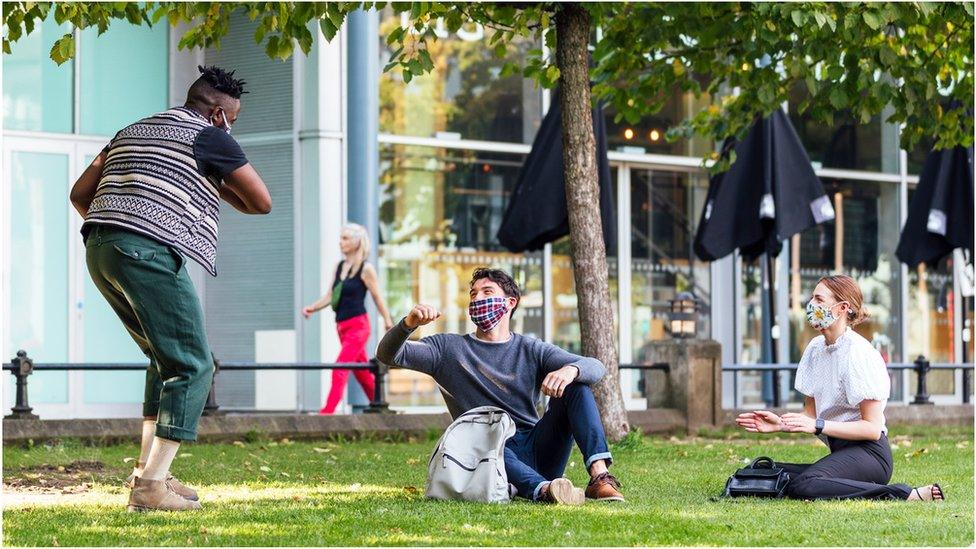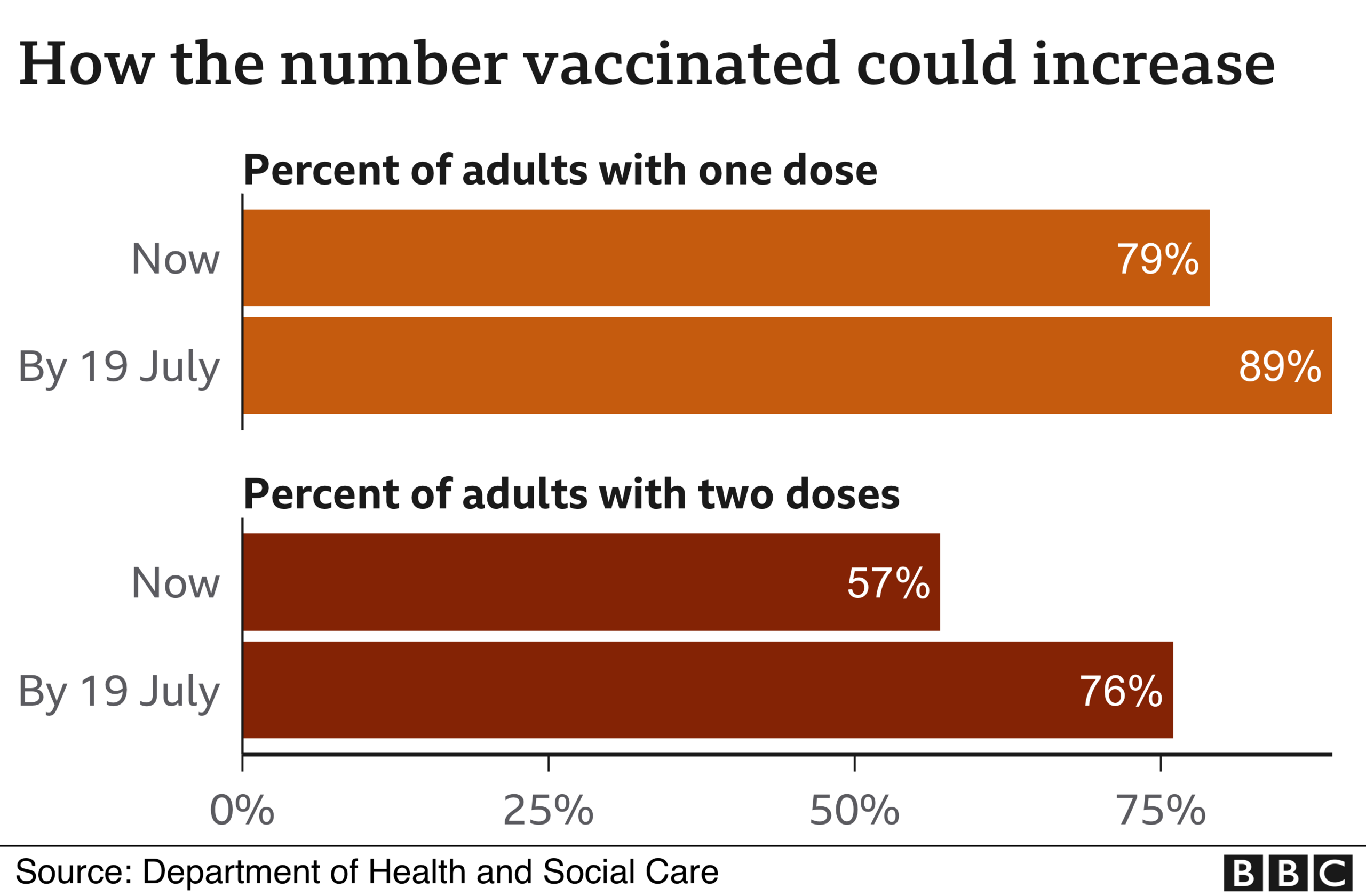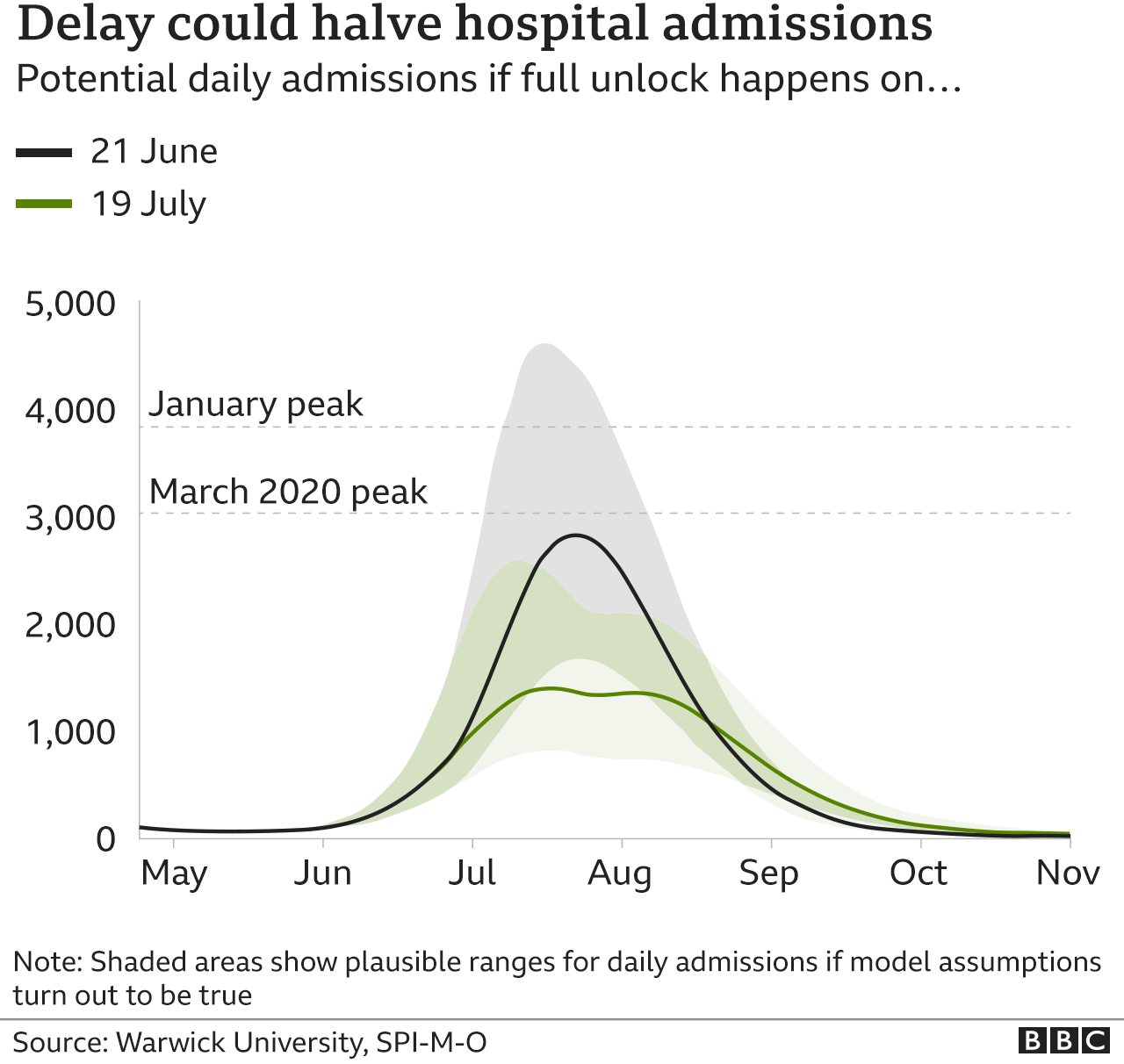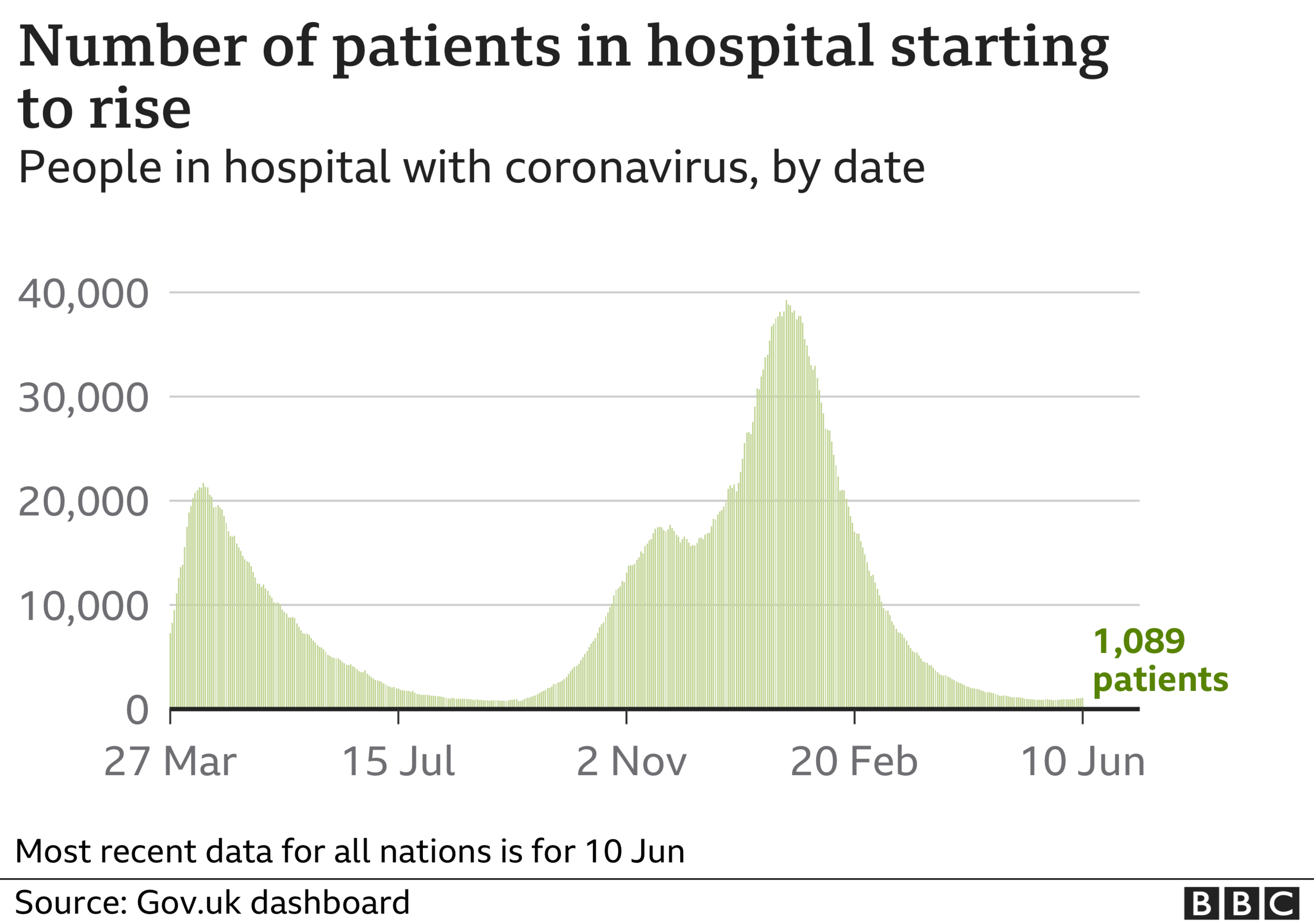21 June: What will delaying the full unlock achieve?
- Published

The government in England is delaying the full lifting of restrictions in England by four weeks. It comes amid rising infection rates.
But what difference does waiting another month make?
More jabs in arms
The most obvious consequence will be that a greater number of people will have been vaccinated.
The government has now brought forward its target to offer all adults a first dose of a vaccine to 19 July.
This is nearly two weeks earlier than the original deadline and means all adults will have had the opportunity to have at least one dose by the time all restrictions are due to lift.
Not everyone will come forward, but if the number of vaccinations being done at the moment remains consistent it would mean more than three-quarters of adults will have had two jabs and nearly nine in 10 one jab.


Chief scientific adviser Sir Patrick Vallance says this will act as a "double protection".
That is because the over-40s, who are most at risk of serious illness, will have had the chance to be fully vaccinated.
Meanwhile, younger age groups, who have the highest rates of infection, will have the benefit of one jab if they take up the offer. As well as providing some protection to them, this will help slow the spread of the virus.
All this though is dependent on supply.
The UK has plenty of AstraZeneca doses - there is thought to be a stockpile of about five million - but the under-30s, who are now being given their first dose, are being offered Pfizer or Moderna because of concern about blood clots.
That has to be imported, and is essentially being used as soon as it arrives.
Limit the impact of this wave
Infection rates are already rising rapidly - doubling every 10 days or so. On current trends, we could hit January levels of infections by the end of July.
The fear was that opening up further would have allowed the virus to spread even more quickly than it is now.
By delaying opening up by four weeks, government modellers say it could reduce the number of those cases ending up in hospital by between a third and a half to around 1,000 a day in the summer.


The rises we are seeing at the moment could also start to slow during this period.
That's because of the high levels of immunity in the population from the vaccination programme, which will make it harder for the virus to spread after an initial surge.
Prof Jonathan Ball, an expert in viruses at University of Nottingham, says his hope is the increases that are being seen now will start to flatten.
"I think in a few weeks we could see it slow. I certainly don't think the speed of the rises we are seeing now will continue for long, given how well the vaccines work."
And if that has not happened by late July, the break-up of schools for the summer holidays could help tip the scales, as it will reduce contacts among young people where Covid is spreading more quickly.
Find out more about hospital cases
But even if infections continue to rise, the delay will still be of benefit as it will give government scientists a better grasp of what the consequences are in terms of hospitalisations.
One of the crucial elements, that is not fully understood at the moment, is to what extent the vaccination programme has broken the link between infections and serious illness.


Hospitalisations have started to rise - albeit from a low base. Early data suggests about 4% of confirmed cases are currently ending up in hospital although there is a lot of uncertainty around this, as the impact of the rise in infections in recent weeks is only just translating into admissions.
That is less than half the proportion ending up in hospital during the winter wave.
But the data only tells you part of the story. It also seems that the patients ending up in hospital are less sick, and are being discharged more quickly.
So it is pretty clear - as we would expect given the vaccine rollout - that the link between infections and hospital cases is significantly weakened, but to what extent exactly remains to be seen.
Fully understanding this will enable scientists to give ministers a clearer idea of what the consequences of a full unlock will be if cases are still rising come 19 July, and therefore whether any measures at all may need to be retained.
Follow Nick on Twitter, external
Related topics
- Published5 July 2023

- Published5 July 2022

- Published30 April 2020

